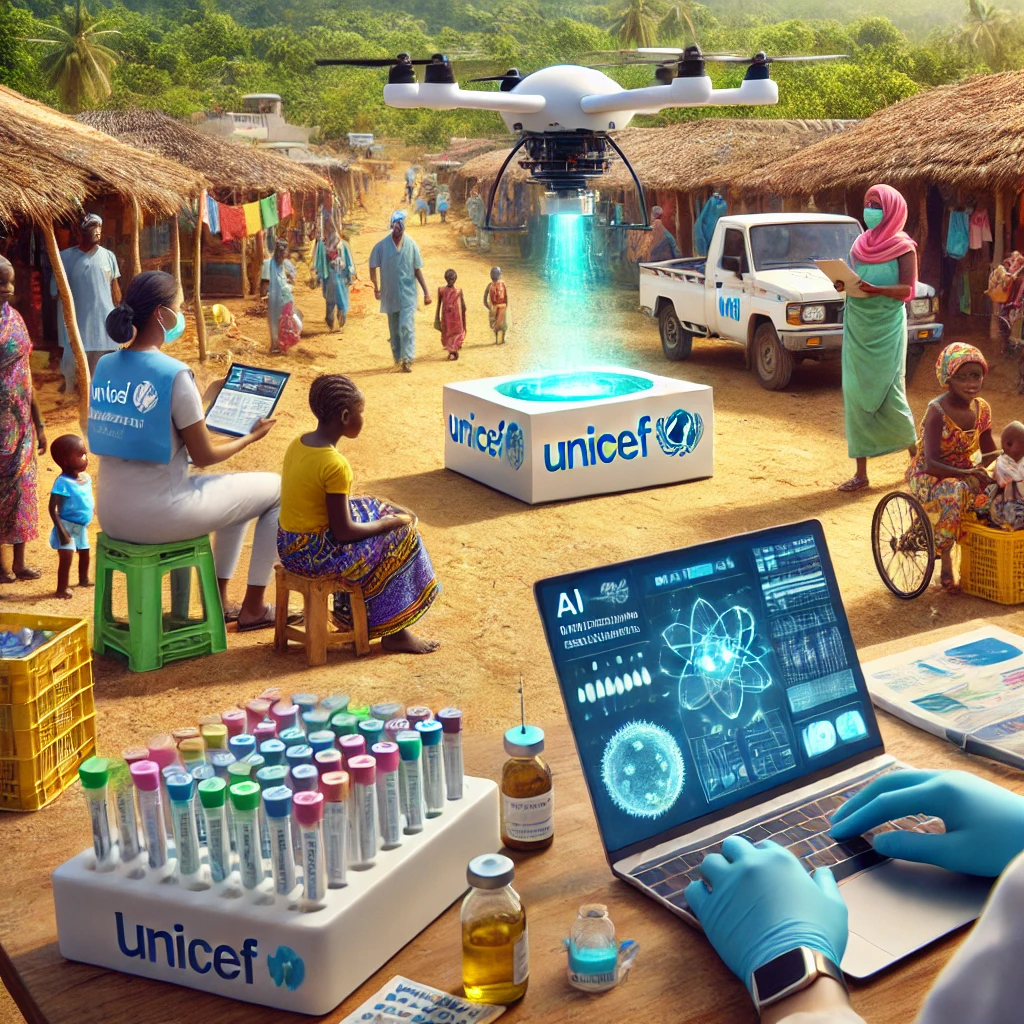UNICEF and IHS Nigeria have a successful relationship that enhances Nigerians’ lives, especially children’s. Through teamwork, they advance education, healthcare, and child protection.
IHS Nigeria, a renowned telecoms infrastructure provider, and UNICEF, a global humanitarian organisation, have collaborated to boost Nigeria’s sustainable development.
Through cooperation, programmes to improve education, healthcare, and children’s rights have been implemented, giving Nigeria’s most vulnerable populations a better life.
Read also: Federal Government empowers Northern Nigerian Women
UNICEF’s School-to-School Connectivity project, launched in 2022, aims to bridge the digital divide in education. IHS Nigeria collaborates to provide internet connectivity to 400+ public secondary schools and donates 200+ mini-tablets to underserved communities.
This unlocks online educational resources, interactive platforms, and digital tools for students.
The project complements the Nigeria Learning Passport, an online and offline curriculum application reaching 1 million users, designed by UNICEF and the Federal Ministry of Education.
Oxygen innovation: UNICEF & IHS Nigeria save lives
IHS Nigeria played a vital role in supporting Nigeria’s COVID-19 response with a comprehensive approach, including co-financing essential supplies such as 10,000 test kits, oxygen concentrators, personal protective equipment (PPE), and vaccines with the European Union and APM Terminals for the National Centre for Disease Control (NCDC).
Additionally, they collaborate with UNICEF to supply over 130,000 test kits, significantly expanding testing capacity for early detection and isolation and ultimately helping to protect frontline healthcare workers and save lives.
IHS Nigeria partners with UNICEF Nigeria’s Oxygen Security Project to address medical oxygen availability.
Launched in 2022, the project has built 9 Pressure Swing Adsorption (PSA) oxygen plants across 8 states, ensuring a reliable oxygen supply for healthcare facilities. Over 1,445 frontline healthcare workers have been trained in oxygen management, saving lives and improving healthcare outcomes for millions of Nigerians.
For example, in Nigeria, the Olabisi Onabanjo University Teaching Hospital plant targets 1.6 million people and uses 4,000 litres of water weekly.
UNICEF and IHS Towers collaborate on digital education initiative
The 2019–2022 Child-Friendly Community Initiative (CFCI) project in some parts of Nigeria, such as Lagos, Bauchi, and Cross River States, encouraged local communities to provide integrated child-centric social services such as education, health, and nutrition.
CFCI’s decentralised planning and resource management addressed child deprivation. Real-time data from Digital Community Information Systems (DCIS) help local decision-making and resource allocation.
Data-driven approaches maximised kid well-being, efficiency, and community-driven development.
IHS Towers bridges the digital divide in education through Giga, a global initiative of UNICEF and ITU. With a $4.5 million investment, IHS Towers provides vital tower data, including from Nigeria, to create a comprehensive map of internet connectivity. This data identifies areas with critical infrastructure gaps, enabling targeted interventions and ensuring no child is left behind in the digital age.
The IHS Nigeria and UNICEF partnership transcends individual projects and presents a successful model for public-private collaboration.
Read also: Zarttalent Foundation, Nigerian Universities offer tech skills to students
UNICEF & IHS Nigeria: Partnering for a brighter future
Ms Cristian Munduate, UNICEF Nigeria Representative, expressed gratitude for UNICEF and IHS Nigeria’s partnership, which has delivered results for children through critical oxygen support, COVID-19 interventions, school connectivity, and the Child-Friendly Communities Initiative (CFCI).
Together, they are advancing sustainable development & a brighter future.
Furthermore, the CEO of IHS Nigeria, Mohamad Darwish, commented that at IHS Nigeria, they strive to deliver a long-term positive impact across their local communities.
They continue contributing to Nigeria’s socio-economic development through strategic sustainability partnerships, with a strong focus on education, healthcare, and community empowerment.
They take great pride in collaborating with UNICEF Nigeria and remain committed to fostering a brighter future for Nigeria.
They achieve tangible results in education, healthcare, and community development by combining resources and expertise. This successful model demonstrates the power of collaboration between the private sector and international organisations.
















